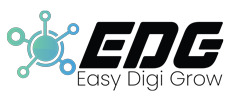In today’s digital-first world, websites are more than just online brochures; they are dynamic hubs of engagement, conversion, and brand narrative. However, to genuinely stand out and scale, organizations require more than simply traditional development tools. Enter Artificial Intelligence (AI). By incorporating AI into website design and development, businesses can create smarter, faster, and more personalized user experiences. From AI-powered chatbots to predictive analytics, the opportunities are limitless. In this blog, we explore five game-changing ways AI is transforming web development and assisting organizations in providing high-performing digital experiences.
What is the role of Artificial Intelligence (AI) in Web Development?
AI in web development is defined as the application of machine learning, deep learning, and automation to streamline processes, increase user engagement, and improve website performance. AI-powered systems analyze massive volumes of data, learn from user interactions, and make intelligent judgments to enhance web experiences.
Artificial intelligence (AI) is transforming the game. For businesses looking to level up, AI is transforming traditional website design and development services into intelligent, performance-driven digital experiences.
If you’re searching for the Best Website Design and Development Service, knowing how AI can enhance your digital presence will help you stay ahead of the curve. Here are five powerful ways AI is revolutionizing the website development space:
-
Personalized User Experiences
Today’s users want more than a one-size-fits-all strategy. They expect a digital experience that recognizes their preferences, needs, and timing. AI-powered personalization does this by evaluating massive amounts of real-time data, such as browsing history, demographics, user behavior, geography, device usage, and even social media activity.
This information enables websites to tailor content, product recommendations, and user interfaces to each visitor. For example, an eCommerce site may offer different product alternatives based on a user’s previous purchases or browsing history. A news platform may reorder information based on reader behavior. AI can also personalize calls-to-action (CTAs), landing pages, and pricing displays to increase conversion rates.
A more relevant, engaging experience that keeps users on your site longer, increasing the likelihood of repeat visits and conversions. In fact, organizations who use advanced personalization techniques see up to a 20% increase in revenue and much lower bounce rates. AI-driven personalization is not simply a choice for organizations looking to provide high-quality website design and development services; it is a competitive must.
-
Smarter Chatbots & Virtual Assistants
Gone are the days when chatbots could only answer basic questions with rigid scripts. Next-generation AI chatbots are smarter, smarter, and are able to conduct useful, human-like conversations thanks to improvements in natural language processing (NLP) and machine learning.
AI-powered virtual assistants can guide customers through entire customer journeys—making product recommendations, troubleshooting, reserving services, collecting feedback, and even taking payments. They can be linked across several platforms, including websites, mobile apps, and social media channels, to ensure consistent 24/7 assistance.
These bots learn from each encounter and evolve over time to provide faster and more accurate responses. Some advanced systems may even detect sentiment and modify their tone to match the user’s emotional state, resulting in increased user satisfaction.
The benefits to organizations are twofold: customers receive immediate assistance, while firms eliminate the need for massive support personnel. Incorporating AI chatbots into website development helps increase conversion rates, reduce support costs, and improve overall customer experience—an essential for any brand aiming to scale effectively in the digital space.
-
AI-Optimized Design & Layouts
Wireframing, prototyping, A/B testing, and user input all take hours when designing a website from the ground up. AI speeds up this process by automating and optimizing design decisions using machine learning techniques.
Platforms like Wix ADI (Artificial Design Intelligence), The Grid, and Bookmark use AI to create visually appealing, responsive websites with minimum human intervention. These systems use business type, target audience, style preferences, and content structure to generate unique layouts that appear professional and correspond with branding objectives.
AI can also identify patterns in how users interact with different elements—buttons, forms, navigation menus—and suggest improvements to enhance usability and accessibility. It eliminates the guesswork from design and ensures that websites are developed not only for aesthetics, but also for usefulness and performance.
This results in shorter turnaround times, lower development costs, and higher-quality websites that are mobile-friendly, visually consistent, and user-centric. Using AI design tools can help web development businesses produce fast, data-driven products at scale.
-
Enhanced SEO Through AI Tools
SEO has evolved much beyond keyword stuffing and backlinks. It now encompasses a deep understanding of user intent, semantic search, voice search, page speed, mobile usability, and core web vitals. AI plays a significant role in mastering these.
Surfer SEO, Clearscope, MarketMuse, and SEMRush AI insights are examples of AI-powered SEO tools that can do in-depth audits, identify on-page issues, and make real-time suggestions. They also examine competitor strategies, monitor SERP (search engine results page) trends, and give content gap analysis to help you outperform your competitors.
These tools use predictive analytics to identify phrases with the highest potential ROI, and they can also generate SEO-optimized content outlines. Furthermore, AI can automate technical SEO tasks such as structured data implementation, broken link identification, and sitemap generation.
Integrating AI-driven SEO into website design and development services ensures that sites are not only visually appealing, but also discoverable, fast, and future-proof. The combination of AI with SEO boosts traffic, raises visibility, and ensures long-term digital success.
-
Using Predictive Analytics for Better Decisions
Informed web development decisions are no longer based on monthly data analysis; instead, real-time, machine-learning-driven insights that anticipate user behavior and recommend proactive changes are used.
Predictive analytics solutions track how visitors explore your website, which pages they interact with the most, where they leave, and which content leads to conversions. These systems employ machine learning to detect patterns and estimate future behaviors, allowing organizations to fine-tune their site layout, content strategy, and conversion funnels.
For example, if a landing page consistently generates high bounce rates, AI algorithms can identify potential causes—such as slow load times, irrelevant content, or a poor layout—and recommend tested solutions. They can also predict what forms of marketing or content will appeal to a specific target category at various times of the year.
This enables businesses to be proactive rather than reactive. With AI-backed insights, you can test hypotheses faster, reduce guesswork, and make agile improvements that are backed by data. Predictive analytics is becoming a cornerstone of smart website development strategies—especially for companies seeking long-term growth and ROI.
Importance of AI in Web Development
AI is revolutionizing the construction and administration of websites, and hence businesses need to utilize AI-driven website creation and web design services. Why artificial intelligence is vital:
- AI reduces development time by eliminating repetitive tasks such as coding, testing, and debugging.
- Improves Personalization – Dynamic content and artificial intelligence-based suggestions provide the user with a more personalized experience.
- AI enhances security by identifying threats, weeding out cyberattacks, and safeguarding sensitive information.
- Maximizes Marketing Tactics – AI analytics shed light on consumer behaviors, enhancing online marketing strategies.
Conclusion:
AI is no longer a futuristic add-on—it’s a critical component of modern web development. By enabling personalization, automating design, optimizing SEO, and offering actionable insights, AI transforms static websites into intelligent digital platforms that drive engagement and results. Businesses aiming to deliver top-tier digital experiences must embrace AI-driven strategies to remain relevant and competitive. Whether you’re starting from scratch or enhancing an existing site, integrating AI into your website development process is a smart move that ensures your digital presence keeps up with evolving user expectations.
 seolounge
seolounge

